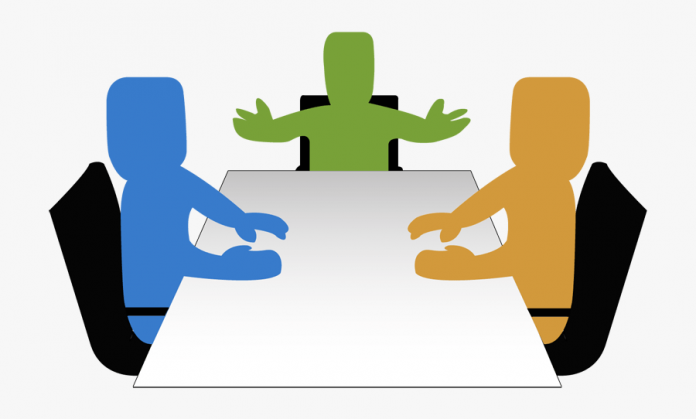This article is written by Ayushi Agarwal, pursuing Certificate Course in Arbitration: Strategy, Procedure and Drafting from LawSikho.
Table of Contents
Introduction
An alternative dispute resolution method has been chosen by many as a more efficient alternative to the traditional Court structure but what makes it more appealing is the proficient way of solving a dispute. For determination of claims, for understanding technicalities of a subject matter or for any other reason experts are often hired to help and aid the procedure of dispute resolution. However, the use of experts has not been introduced recently, it dates to 1782 when Lord Mansfield in the case of Folkes v. Chadd allowed expert opinion to determine the outcome of the case.
In India as well, the use of experts has been very instrumental in a few landmark cases. In the matter of Ramesh Chandra Agarwal vs Regency Hospital Ltd. & Ors. AIR 2010 SC 806, the Apex Court held that an expert is not a witness of fact (like other witnesses) and his evidence is really of an advisory character. The duty of the expert witness is to furnish the Judge with the necessary scientific criteria for testing the accuracy of the conclusions so as to enable the Judge to form his independent judgment by the application of these criteria. No expert can claim that he could be absolutely sure that his opinion was correct.
Literal meaning of the word “expert”
Now to get a better understanding of what an expert really does, we must delve into the literal meaning of the word itself. An expert is a person who has an in-depth knowledge of a subject and is capable of diving deep and seeking answers to a question raised on that subject. They are the gurus of a subject and often have a more scholarly and proficient lookout for their respective subjects. Experts have been defined in the Webster Dictionary as; “having, involving, or displaying special skill or knowledge derived from training or experience”.
Experts have been consulted and relied upon by the courts of justice since time immemorial. The judicial officers, judges, magistrates, and arbitrators are expected to know and rule upon law points but often these judgements are influenced by views of experts in the field and their testimonials on the law points. The terms “Expert Opinion” and “Expert Testimony” often appears before us as lawyers and these terms have been defined and described in the legal dictionary as;
Expert testimony– “opinions stated during trial or deposition (testimony under oath before trial) by a specialist qualified as an expert on a subject relevant to a lawsuit or a criminal case.”
Expert witness– “a person who is a specialist in a subject, often technical, who may present his/her expert opinion without having been a witness to any occurrence relating to the lawsuit or criminal case. It is an exception to the rule against giving an opinion in the trial, provided that the expert is qualified by evidence of his/her expertise, training and special knowledge. If the expertise is challenged, the attorney for the party calling the “expert” must make a showing of the necessary background through questions in court, and the trial judge has the discretion to qualify the witness or rule he/she is not an expert or is an expert on limited subjects. Experts are usually paid handsomely for their services and may be asked by the opposition the amount they are receiving for their work on the case. In most jurisdictions, both sides must exchange the names and addresses of proposed experts to allow pre-trial depositions.”
Origin of the use of experts
The use of experts has had an impactful role in the establishment of some major judgements in the past. It is also imperative to note that the term “The opinion of experts” has been defined under the Indian Evidence Act, 1872 as;
“Opinions of experts.—When the Court has to form an opinion upon a point of foreign law or of science or art, or as to the identity of handwriting [or finger impressions], the opinions upon that point of persons specially skilled in such foreign law, science or art, [or in questions as to the identity of handwriting] [or finger impressions] are relevant facts. Such persons are called experts.”
Experts in arbitration
Now that it has been established that experts are an indispensable part of forming an opinion on a complex subject, we shall discuss their role in an arbitration proceeding.
According to my opinion, the purpose of arbitration is to resolve disputes between parties outside the traditional judicial courts established by law. Though, arbitration is also an alternative dispute resolution method recognized and practised in accordance with the Arbitration and Conciliation Act, 1996. With the increasing complexities and the rise of sector-specific arbitration, the appointment of experts becomes crucial in resolving disputes. Arbitrators often face multiple questions, like:
- Whether the use of an expert will provide a better understanding of the subject?
- Whether the parties agree on the appointment of a third party i.e. an expert to throw light on the point in law?
- Whether parties agree to a common expert or a panel of experts for the resolution of their dispute?
- Whether the opinion of an expert is crucial to the outcome of the Arbitration or not?
- Whether the opinion of the expert is based on correct and undisputed factual status?
- Whether the expert has applied their technical knowledge and arrived at the most probable conclusion?
The above questions are key to the admission of an expert opinion. In the Article “Relevancy of Expert’s Opinion” the author observes that the value of an expert opinion is dependent on the facts on which it was based and the competency of such facts to form a reliable opinion. Therefore, the author observes that the importance of an opinion is decided on the basis of the credibility of the expert and the relevant facts supporting the opinion so that its accuracy can be cross-checked. Therefore, the emphasis has been on the data on which opinion is formed. The same is clear from the following inference:
“Mere assertion without mentioning the data or basis is not evidence, even if it comes from an expert. Where the experts give no real data in support of their opinion, the evidence, even though admissible, may be excluded from consideration as affording no assistance in arriving at the correct value.”
Importance of experts in arbitration
Some questions before an arbitrator are beyond legal acumen and these questions pertain to a certain specific area of study which can either be accountancy, taxation, asset valuation, science, intellectual property rights, technology, energy sector etc. The experts hired from these sectors will possess knowledge that is unique and particular to this area of study and will therefore help and assist the Court/Arbitrator to make their decision in a more informed manner. In an article published on the website of the Global Arbitration Review, Mr Stephen Bond, from Covington & Burling LLP has indicated the importance of an experienced expert as an investment worth making;
“The importance of competent and professional expertise cannot be overstated. Experienced experts are expensive, especially in cases requiring complex questions of delay analysis and damage quantification. It is understandable that parties can often be reluctant to make a considerable investment in leading experts; however, it is an investment that is always worth making. I have personal experience of a number of occasions when an otherwise potentially strong case failed because of flawed expert analysis. Even when a tribunal is otherwise persuaded that a party has a good case, it will not be able to eventually find for that party unless it has detailed and cogent evidence to support the findings when they write up the award. Careful arbitrators tend to be conservative in their decision-making and are looking for a strong and reliable evidentiary basis to reassure them that their decision is the right one.”
In the same article, another scholar George A Bermann, from Columbia University School of Law highlights that experts win cases;
“Asked, long after the fact, by losing counsel in a case where the weaknesses in his advocacy, if any, lay, I offered two simple words: ‘Your expert.’ That was the truth.
Expert evidence is of the essence in any dispute in arbitration that has the least technical dimension. In more cases than one might imagine, outcomes turn on evidence of a more or less specialised nature. Most leading international arbitrators are generalists and, albeit to a somewhat lesser extent, so too are most leading international arbitration counsel. Expert witnesses plainly fill this gap. Even in disputes having no particularly specialised character, if monetary relief is forthcoming, so too will be expert evidence on damages.
Because arbitral tribunals gauge carefully the objectivity and reliability of expert witnesses, counsel needs to admonish experts that poor expert performance can sabotage what might otherwise be a winning case. Who are the experts to avoid? Those who display excessive partisanship, undue defensiveness (including taking umbrage at challenges to their credentials), inconsistencies with prior statements (including prior writings and testimony) and an unwillingness to make strategic concessions.”
Expert witness on the recent developments on the use of experts in arbitration
Mr. Mrinal Jain in his article published in Who’s Who Legal has commented upon the future and challenges faced by the use of experts in an arbitration proceeding;
“First, it is essential to create knowledge and awareness of the role of an independent expert witness in the dispute resolution process amongst the corporates and the legal fraternity in India. The expert witness work is still at a nascent stage in this country (as compared to the developed countries like Singapore, USA and UK) and requires greater acceptability and recognition by the arbitration community, in general. This is true especially in cases where complex economic, financial and valuation issues are contested.
Second, it is pertinent to recognise the need to continue to develop the next generation of expert witnesses and assist the first-timers in identifying suitable opportunities to present themselves as an expert.
Finally, the expert witness work will evolve over time with the increasing reliance on technology and artificial intelligence; and changing law of damages.”
Conclusion
Thus, this makes it imperative that the expert hired not only bring their technical know-how to the table but also make complex issues much easier to resolve which may be alien to even the parties involved. We shall not only be looking at the basic qualities like independence and authority but also their ability to answer each question that may arise during the pendency of proceedings. As Indian legal problems develop into complex technical issues, the use of experts will eventually become inescapable.
Students of Lawsikho courses regularly produce writing assignments and work on practical exercises as a part of their coursework and develop themselves in real-life practical skills.
LawSikho has created a telegram group for exchanging legal knowledge, referrals, and various opportunities. You can click on this link and join:
 Serato DJ Crack 2025Serato DJ PRO Crack
Serato DJ Crack 2025Serato DJ PRO Crack











 Allow notifications
Allow notifications


